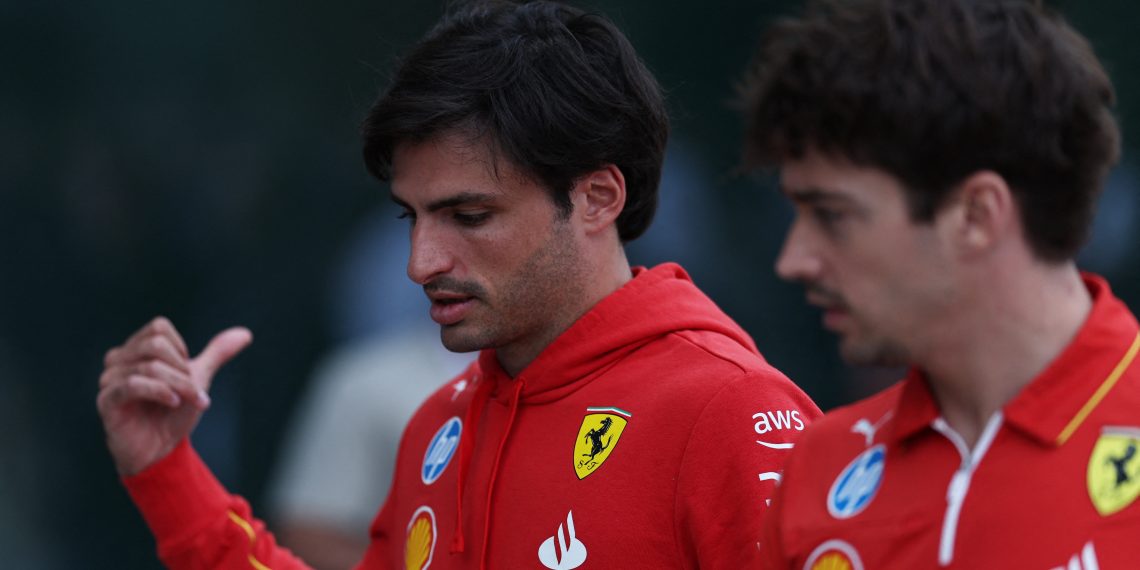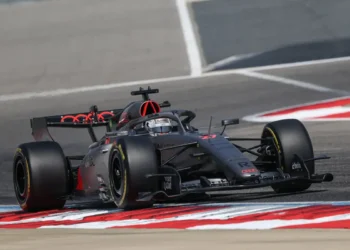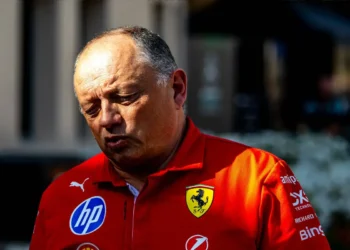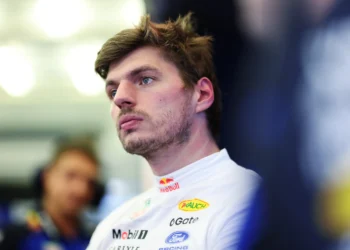In most sports, what happens on the field stays on the field—protected by a veil of silence, save for the odd referee mic. Whether it’s Lionel Messi missing a pass, Kevin De Bruyne skying a penalty, or Eben Etzebeth grabbing someone by the throat, the world rarely gets to hear their heated outbursts. The result? A quick apology from the commentator, and the game goes on.
But in Formula 1, there’s no such cover. Every moan, groan, and f-bomb is on public display, broadcast to millions. And when a frustrated driver lets loose, the fallout is instant, global, and relentless. Social media erupts, think pieces flood the internet, and the morality brigade starts jumping up and down like it’s the end of civilization.
The Vegas Drama: When Emotions Spill Over
Take the 2024 Las Vegas Grand Prix, where Charles Leclerc and Carlos Sainz clashed in a fiery team spat. Ferrari’s pit strategy—or lack thereof—set the stage for tension. Sainz, desperate to pit early, was told to stay out, only to controversially abandon his stop at the last second.
When Sainz finally pitted, it compromised Leclerc’s attempt at an overcut, and the Spaniard ignored a team directive to let Leclerc pass as he exited the pit lane. The Monegasque was incensed, venting over the radio:
“Being nice fks me over all the fking time,” he lashed out, frustrated that the team’s mishandling cost him valuable points in his battle for second in the championship with Lando Norris.
The Gladiator Effect
Unlike other sports, F1 broadcasts everything—warts and all. This transparency makes drivers seem more like gladiators than athletes, with their raw emotions on full display. And while Ferrari boss Fred Vasseur shrugged off the clash as “spur-of-the-moment crap,” the world outside F1 doesn’t see it that way.
Social media users, pundits, and critics weigh in on every heated exchange, treating a driver’s frustration like a PR disaster rather than a natural reaction. As Vasseur, a true racer, aptly noted, this is just part of the sport. “It’s not an issue,” he said. “Well, not to anyone that matters, anyway.”
Why F1 is Different
The key difference between F1 and other sports is the level of exposure. In soccer, rugby, or tennis, we only hear the sanitized version—an occasional apology from the commentator when tempers flare. But F1’s unique setup puts drivers’ emotions front and center, broadcasting their every expletive to the world.
Would Messi’s frustration with a missed pass generate as much buzz if we could hear him curse on live TV? Would Novak Djokovic’s meltdowns be headline news every weekend? The truth is, F1’s transparency makes its stars more relatable—and, ironically, more polarizing.
The Stakes at Play
Leclerc’s anger wasn’t just about pride. Those three points that Sainz claimed by ignoring orders could prove decisive in his battle for second in the championship. Meanwhile, Sainz, set to leave Ferrari for Williams, has nothing to lose and everything to gain by playing the bad boy. Would you care about following team orders in his shoes? Neither would most.
As for Leclerc, his outburst was no different from the frustration any elite athlete feels when their game is compromised. The only difference? In F1, we hear it all.
Raw Emotion Is the Real Show
At its core, F1’s public airing of its stars’ frustrations is part of what makes the sport so compelling. It’s unscripted drama in its purest form—a gladiatorial battle where the stakes are sky-high, and the emotions are unfiltered.
So, while Leclerc’s reaction dominated headlines, it’s worth remembering that the rawness of F1 is precisely what sets it apart. For every four-letter word that grabs attention, there’s a driver pouring their heart and soul into every lap, every corner, every race.










